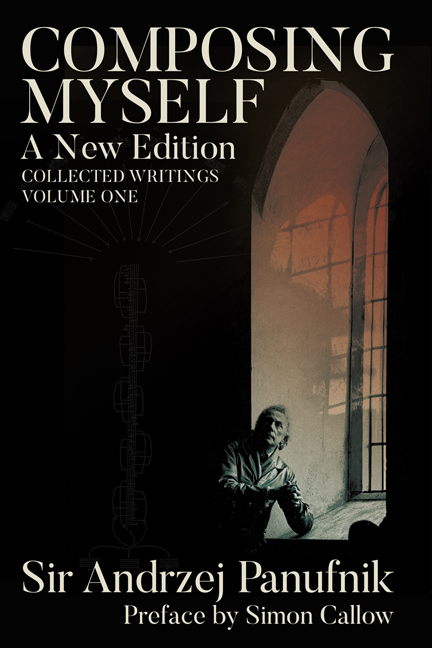3 - The Conservatoire
Published online by Cambridge University Press: 09 January 2024
Summary
To my great joy I was allowed to enrol immediately in the Faculty of Theory and Composition. I instantly gave up my percussion lessons; they had just been an excuse to get me into the Conservatoire (though the experience undoubtedly paid off later in many of my compositions). My teacher was devastated. He begged me to continue, assuring me that I could expect a highly successful career as a percussionist.
I now plunged into my music studies at top speed. The normal pattern at the Conservatoire was to study basic musical knowledge for one year, followed by three years for harmony, three more for counterpoint, then two years for composition – a timetable which I considered ridiculously staid and slow. I not only worked energetically at my piano technique every day but also attacked my other work so hard that eventually I found that I had completed the course in theory and composition in half the prescribed amount of time, despite the vast amount of written work involved. In addition, rapidly bored with the endless succession of dry academic exercises, I practised both my counterpoint and my harmony by actually composing, so that I could introduce some emotional content as well as technique.
Soon compositions seemed almost to pour too fast from my pen, including some Variations for piano and a Classical Suite for string quartet, which was played at a public concert in the Conservatoire hall by a group of advanced students led by my old schoolfriend, Stanisław Jarzębski. Fate still seemed unwilling to allow me to hear my own performances: I was stuck in bed with ‘flu, unbearably tantalised to be told by witnesses of their ‘superb rendering, received with wild applause’.
My Variations and Classical Suite, however, were still no more than student works, written as part of my classwork in harmony and counterpoint. When in the spring of 1934, aged nineteen, I composed my Trio for violin, cello and piano, exploiting my newly acquired techniques in the basic musical forms such as sonata, song and rondo, I was becoming confident enough to be much freer with my invention and musical imagination.
- Type
- Chapter
- Information
- Composing Myselfand Other Texts, pp. 63 - 83Publisher: Boydell & BrewerPrint publication year: 2023

